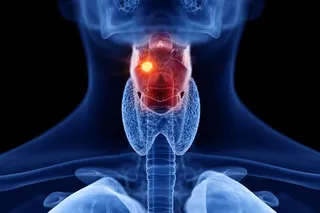While breast cancer rates for women aged 20 to 49 have gradually grown over the past 20 years, mortality from all forms of the disease and in all racial and ethnic groups have declined significantly from 2010 to 2020 with an even bigger dip in deaths after 2016, according to data presented at a meeting of the American Association for Cancer Research (AACR) in Chicago.
Greater access to screening, advancements in treatment options, and a movement toward precision medicine all likely drove the decrease in mortality.
For instance, the drug Herceptin has been effective for forms of breast cancers with tumors expressing a particular protein (HER2 positive). Another class of drugs (CDK4/6 inhibitors), which work with the endocrine system to target a form of breast cancer (HER2-negative) not receptive to Herceptin may have added to the decline in mortality. The approval of CDK4/6 inhibitors matches the years in which deaths ...














